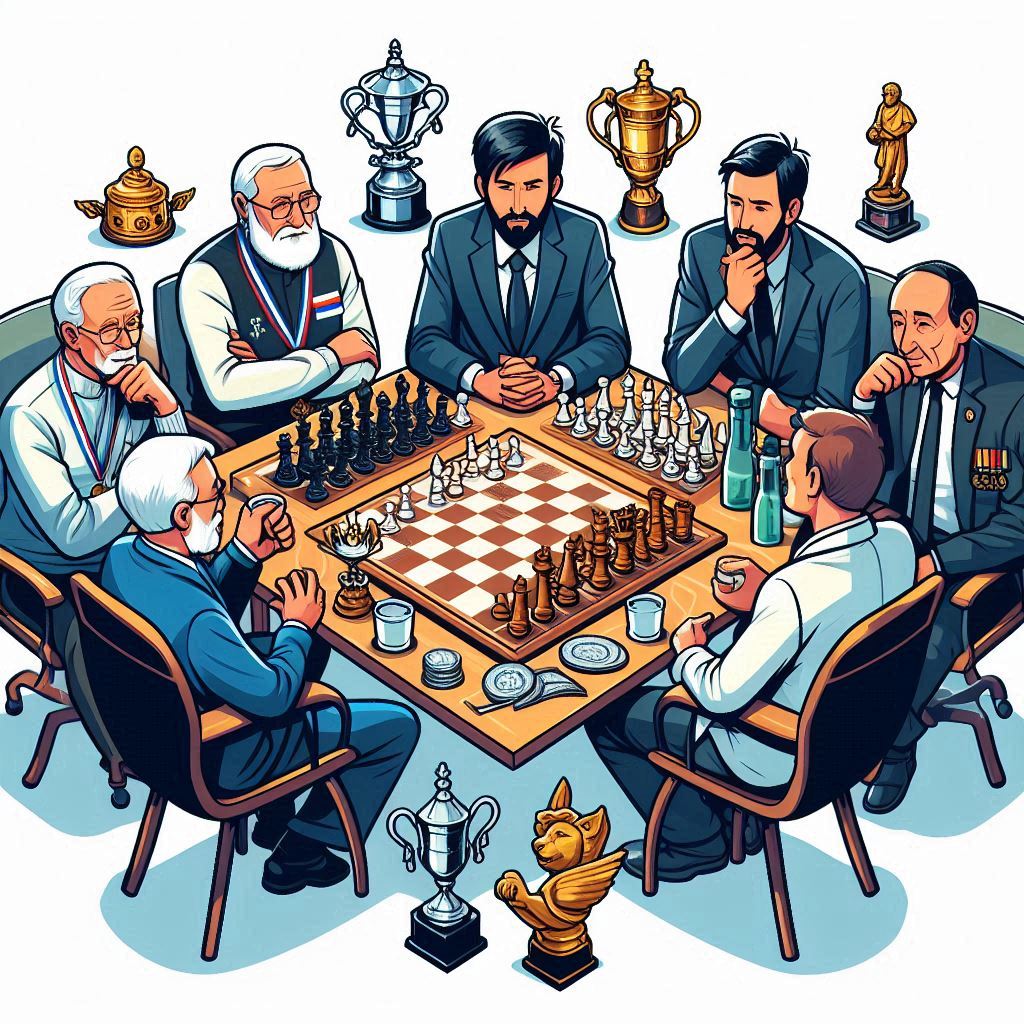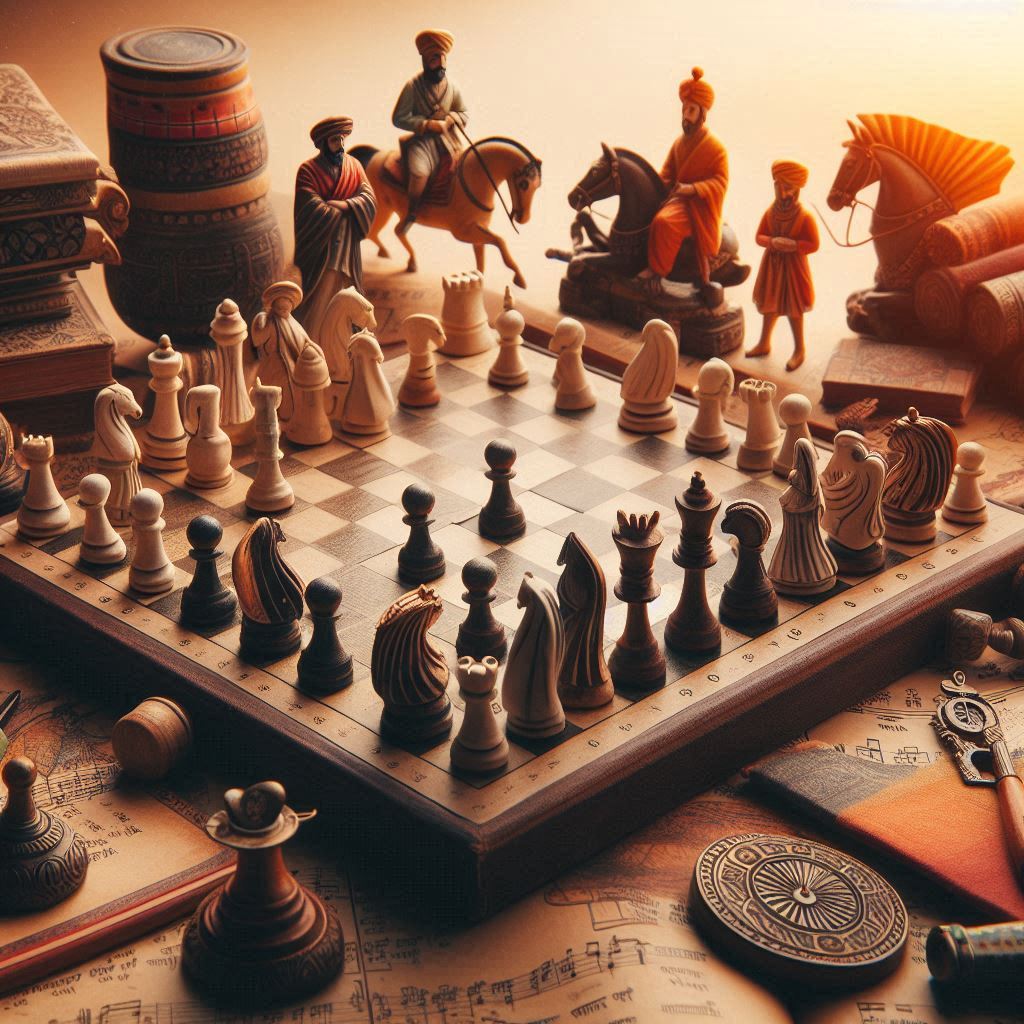Introduction
Chess, a game of deep strategy and intellect, has produced many legendary figures whose brilliance has left an indelible mark on the game. These chess grandmasters have not only achieved remarkable victories but also contributed significantly to the evolution of chess strategies and theories. This article delves into the lives and accomplishments of some of the most famous chess grandmasters, celebrating their achievements and their influence on the world of chess.
Bobby Fischer
Revolutionary Strategies, 1972 World Championship: Bobby Fischer, an American prodigy, revolutionized chess with his deep understanding and innovative strategies. His victory over Boris Spassky in the 1972 World Championship not only ended Soviet dominance in chess but also popularized the game in the United States. Fischer’s contributions to opening theory and his demanding standards for chess excellence have left a lasting legacy.
Garry Kasparov
Dominance in the 1980s and 1990s, Computer Matches: Garry Kasparov, often regarded as the greatest chess player of all time, dominated the chess world from the mid-1980s to the early 2000s. Known for his aggressive play and deep preparation, Kasparov became the youngest ever undisputed World Chess Champion in 1985. His matches against computer programs like Deep Blue highlighted the evolving relationship between technology and chess.
Magnus Carlsen
Modern Prodigy, Record-Breaking Achievements: Magnus Carlsen, the current World Chess Champion, is celebrated for his versatility and endgame prowess. Carlsen became the world’s youngest grandmaster in 2004 and has since broken numerous records, including the highest ever Elo rating. His intuitive style and adaptability make him a formidable opponent in any format.
Anatoly Karpov
Long Reign, Matches Against Kasparov: Anatoly Karpov, a dominant figure in the 1970s and 1980s, was known for his positional play and strategic depth. Karpov held the World Chess Championship title from 1975 to 1985 and engaged in several epic matches against Garry Kasparov. Their rivalry is one of the most famous in chess history.
Viswanathan Anand
India’s Chess Icon, Rapid and Classical World Titles: Viswanathan Anand, the first Indian to become a grandmaster, has been a major force in chess for decades. Known for his speed and tactical acumen, Anand has won multiple world titles in different formats, including rapid and classical chess. His success has inspired a generation of Indian chess players.
Mikhail Tal
The Magician of Riga, Creative Attacking Play: Mikhail Tal, the eighth World Chess Champion, was renowned for his imaginative and daring attacking style. Known as “The Magician of Riga,” Tal’s games are celebrated for their creativity and brilliance. His fearless approach to chess continues to inspire players who favor aggressive and tactical play.
Jose Raul Capablanca
Endgame Mastery, Longest Unbeaten Streak: Jose Raul Capablanca, the third World Chess Champion, was known for his exceptional endgame skills and natural talent. Capablanca’s smooth and seemingly effortless style led to an impressive unbeaten streak from 1916 to 1924. His contributions to endgame theory remain influential to this day.
Vladimir Kramnik
Match with Kasparov, Innovation in Openings: Vladimir Kramnik, who became World Chess Champion by defeating Garry Kasparov in 2000, is known for his strategic depth and opening innovations. Kramnik’s introduction of the Berlin Defense in his match against Kasparov changed the course of opening theory and demonstrated his profound understanding of the game.
Judith Polgar
Greatest Female Player, Beating World Champions: Judith Polgar, widely considered the greatest female chess player of all time, broke numerous barriers in the male-dominated world of chess. Polgar defeated several world champions, including Garry Kasparov and Anatoly Karpov, and consistently competed at the highest levels. Her achievements have inspired countless female players worldwide.
Alexander Alekhine
World Champion, Deep Combinational Play: Alexander Alekhine, the fourth World Chess Champion, was known for his deep combinational play and sharp tactics. Alekhine’s aggressive and imaginative style led to many brilliant games and notable victories. His contributions to opening theory and attacking play are still studied today.
Tigran Petrosian
Iron Defense, Strategic Depth: Tigran Petrosian, the ninth World Chess Champion, was known for his impenetrable defense and strategic acumen. Nicknamed “Iron Tigran,” Petrosian’s cautious and patient style made him one of the most difficult players to defeat. His strategic depth and prophylactic thinking have influenced many modern players.
Paul Morphy
19th-Century Prodigy, Pioneering Attacking Style: Paul Morphy, a 19th-century American chess prodigy, is often considered the first unofficial world champion. Morphy’s pioneering attacking style and deep understanding of open positions set him apart from his contemporaries. His brilliant and aggressive play continues to be celebrated and studied.
Boris Spassky
World Champion, Diverse Playing Style: Boris Spassky, the tenth World Chess Champion, was known for his versatile and adaptable playing style. Spassky could seamlessly switch between aggressive and defensive strategies, making him a formidable opponent. His famous 1972 match against Bobby Fischer is one of the most iconic in chess history.
Mikhail Botvinnik
Patriarch of Soviet Chess School, Scientific Approach: Mikhail Botvinnik, the sixth World Chess Champion, was a pivotal figure in the development of Soviet chess. Botvinnik’s scientific approach to the game and rigorous training methods set a new standard for chess excellence. He mentored several future world champions, including Garry Kasparov and Anatoly Karpov.
Emanuel Lasker
Longest Reigning World Champion, Philosophical Approach: Emanuel Lasker, the second World Chess Champion, held the title for a record 27 years (1894-1921). Lasker’s philosophical approach to chess, focusing on psychological factors and practical play, distinguished him from his peers. His resilience and adaptability made him one of the greatest champions in chess history.
FAQs
Who is considered the greatest chess player of all time?
Many consider Garry Kasparov to be the greatest chess player of all time due to his dominance and numerous achievements.
What was Bobby Fischer’s most famous achievement?
Bobby Fischer’s most famous achievement was winning the 1972 World Championship, ending Soviet dominance in chess.
Who is the current World Chess Champion?
As of the last update, Magnus Carlsen is the current World Chess Champion.
Which female chess player has achieved the highest success?
Judith Polgar is widely regarded as the greatest female chess player, having defeated multiple world champions.
What was Mikhail Tal known for in chess?
Mikhail Tal was known for his imaginative and daring attacking style, earning him the nickname “The Magician of Riga.”
How did computers influence Garry Kasparov’s career?
Garry Kasparov’s matches against computers like Deep Blue highlighted the evolving relationship between technology and chess, and he extensively used computer analysis in his preparation.
Conclusion
The achievements of these famous chess grandmasters have not only shaped the game but also inspired generations of players. Their innovative strategies, remarkable victories, and lasting contributions continue to influence the chess world. As we celebrate their legacies, we also look forward to the new talents and evolving strategies that will shape the future of this timeless game.



